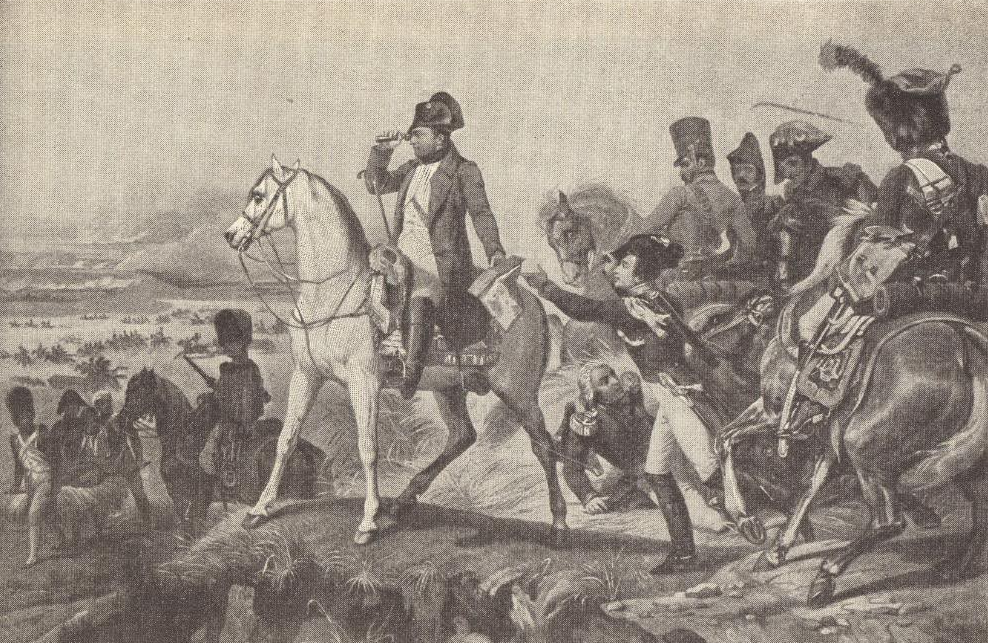Napoleon Bonaparte at the Battle of Wagram, 1809: This battle pitted the French against the Austrians, with France victorious. It ended the Fifth Coalition. Click here to enlarge.
The Battle of Wagram, fought on July 5-6, 1809, was a significant conflict during the Napoleonic Wars, pitting Napoleon Bonaparte's French forces against the Austrian army led by Archduke Charles. This battle was a key moment in the War of the Fifth Coalition, which saw Austria attempting to curtail Napoleon's dominance in Europe.
The battle took place near the village of Wagram, northeast of Vienna, along the Danube River. Napoleon, who had recently captured Vienna, sought to decisively defeat the Austrian forces to cement his control. The Austrians, meanwhile, aimed to exploit their numerical superiority and the terrain to challenge the French.
On the first day of battle, the Austrians launched a vigorous attack, pushing back the French forces. However, Napoleon's strategic acumen came to the fore on the second day. He orchestrated a massive counterattack, concentrating his forces effectively and utilizing his superior artillery. The decisive moment came when Marshal Louis-Alexandre Berthier's corps outflanked the Austrian left wing, causing a significant breach in their lines.
The French victory at Wagram forced the Austrians to retreat and eventually led to the Treaty of Schönbrunn in October 1809, which imposed harsh terms on Austria. The battle showcased Napoleon's tactical brilliance and marked the decline of Austria as a major military power, reaffirming French dominance in Europe. However, it also demonstrated the increasing challenges Napoleon faced, as his forces incurred substantial casualties, foreshadowing the difficulties that would eventually contribute to his downfall.
|















